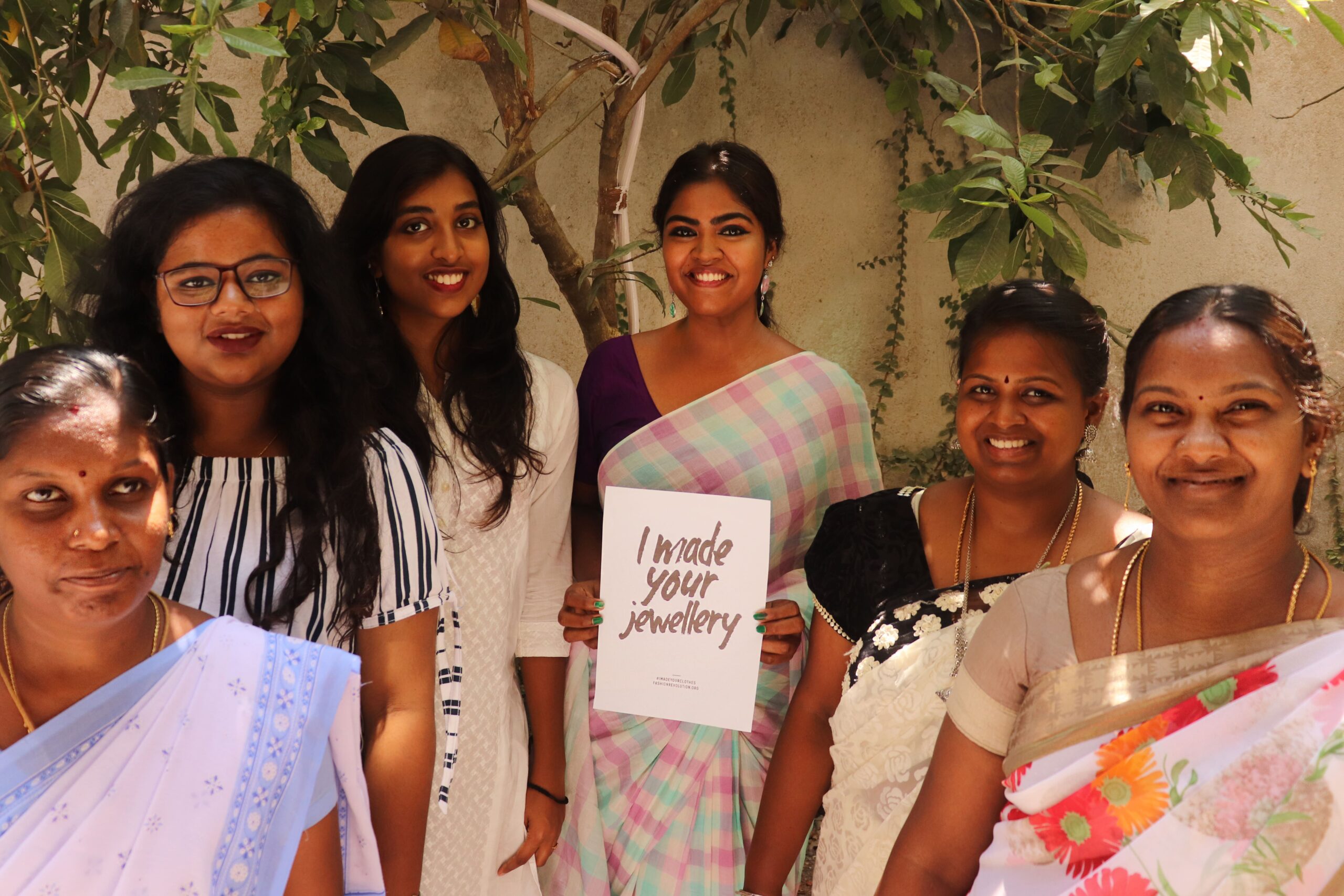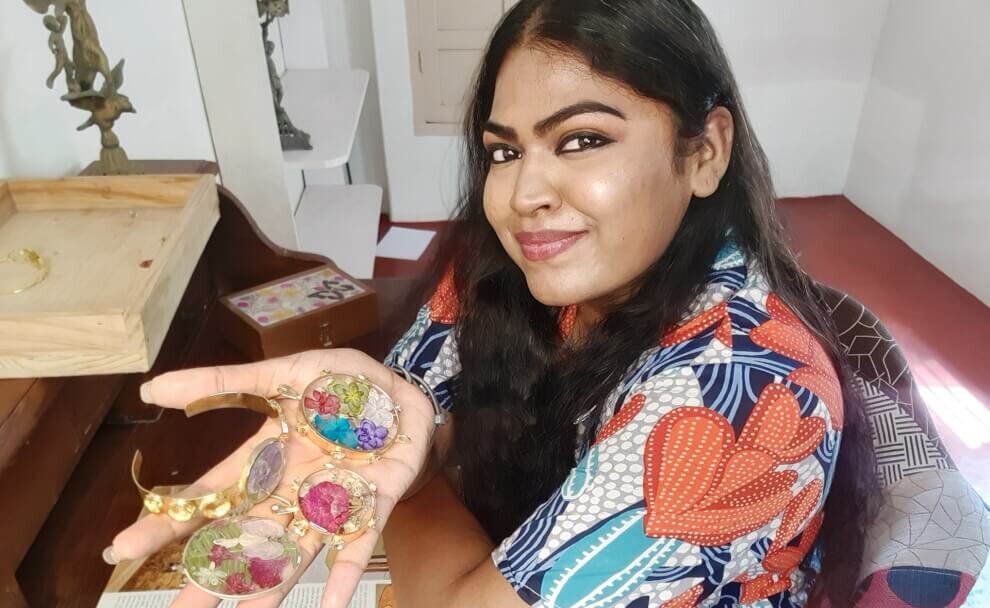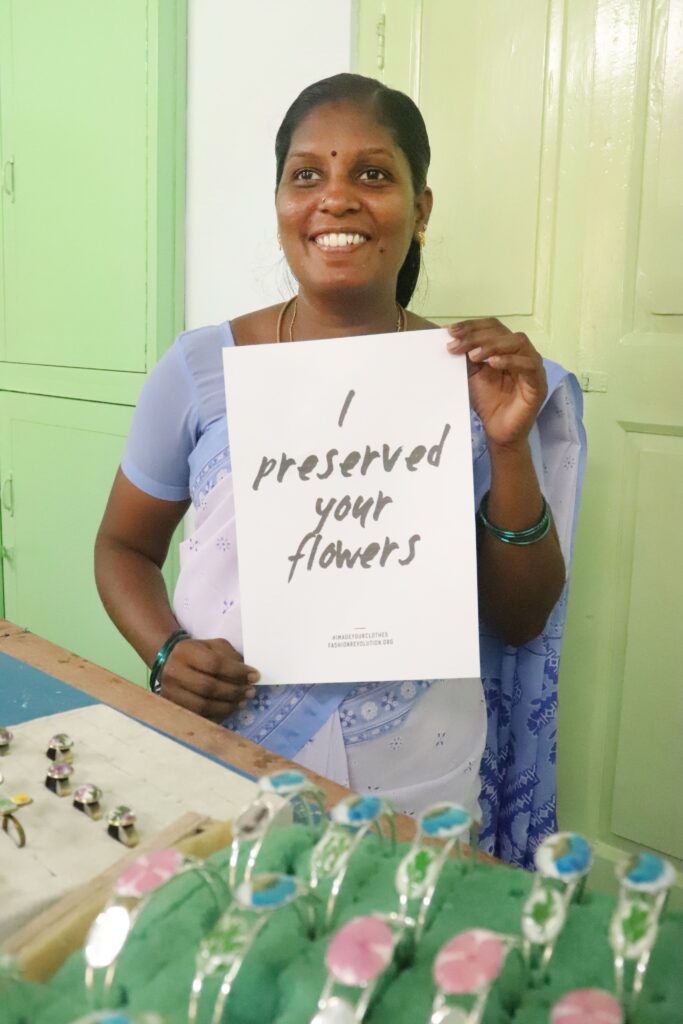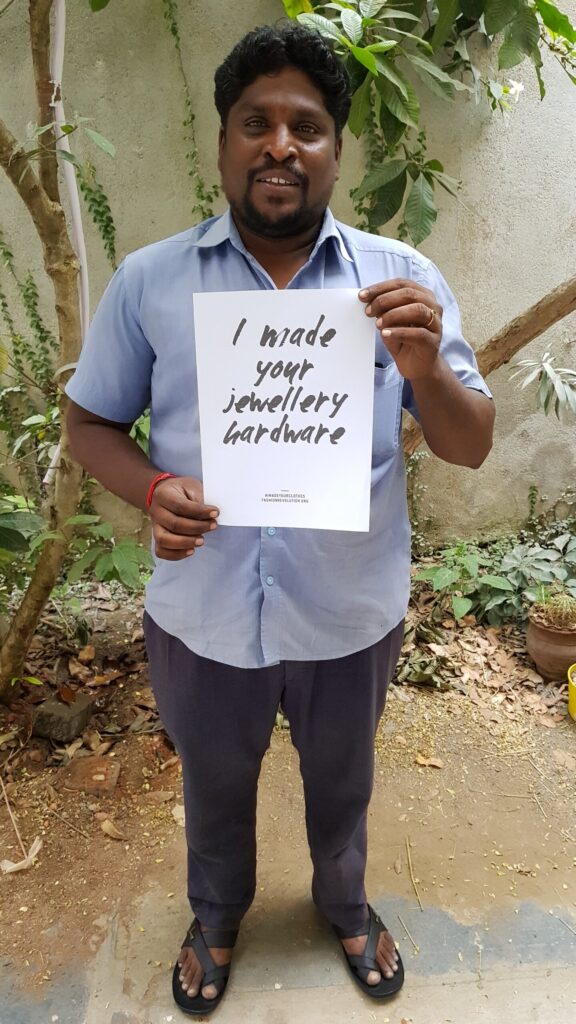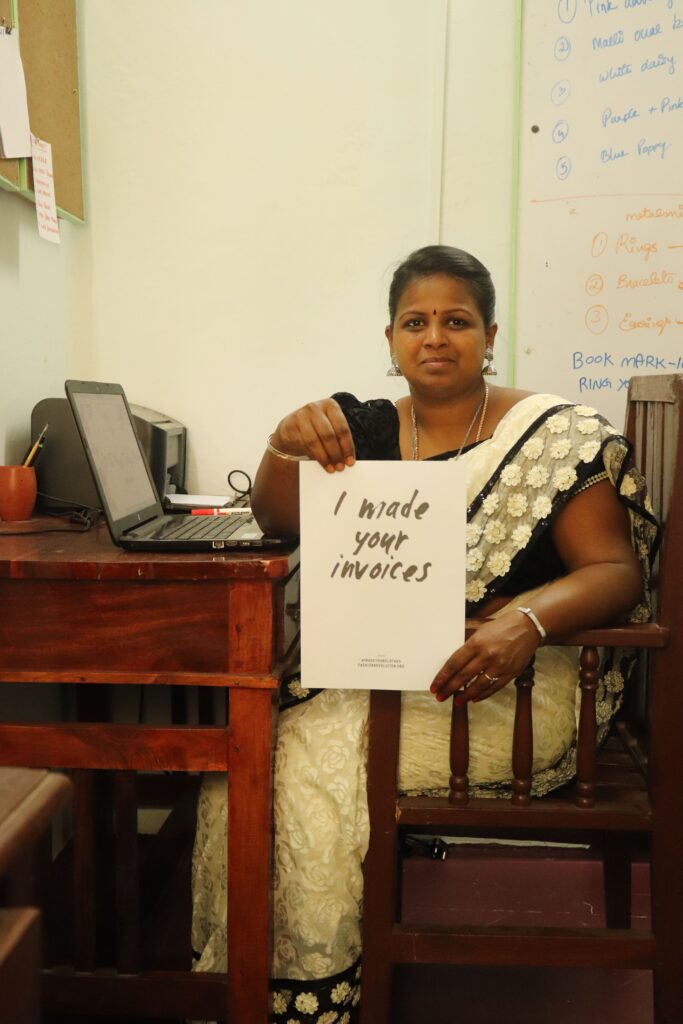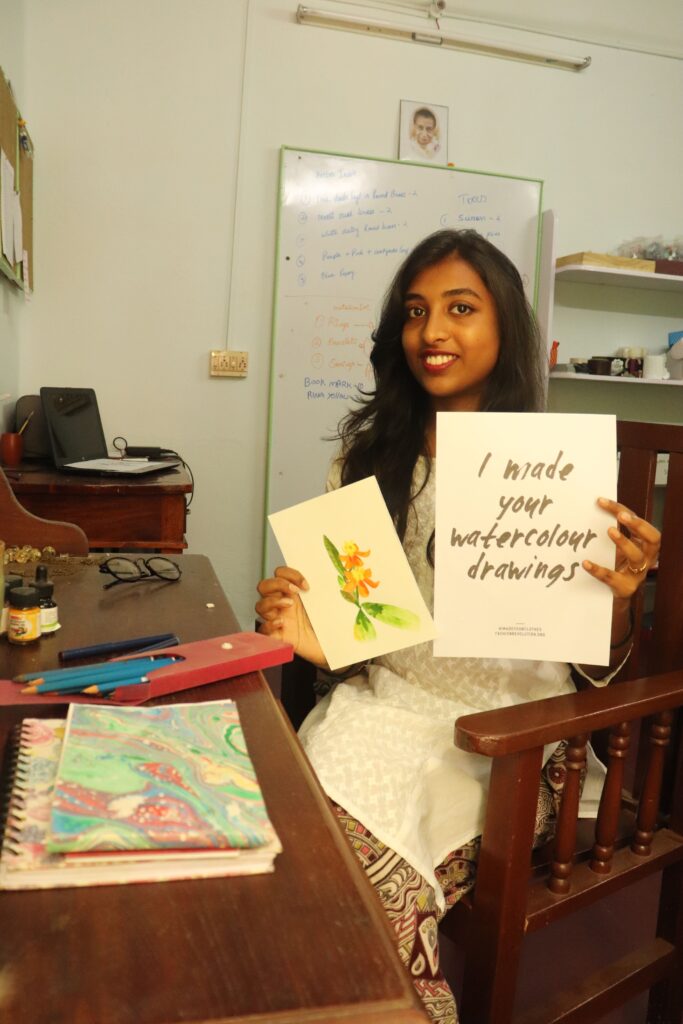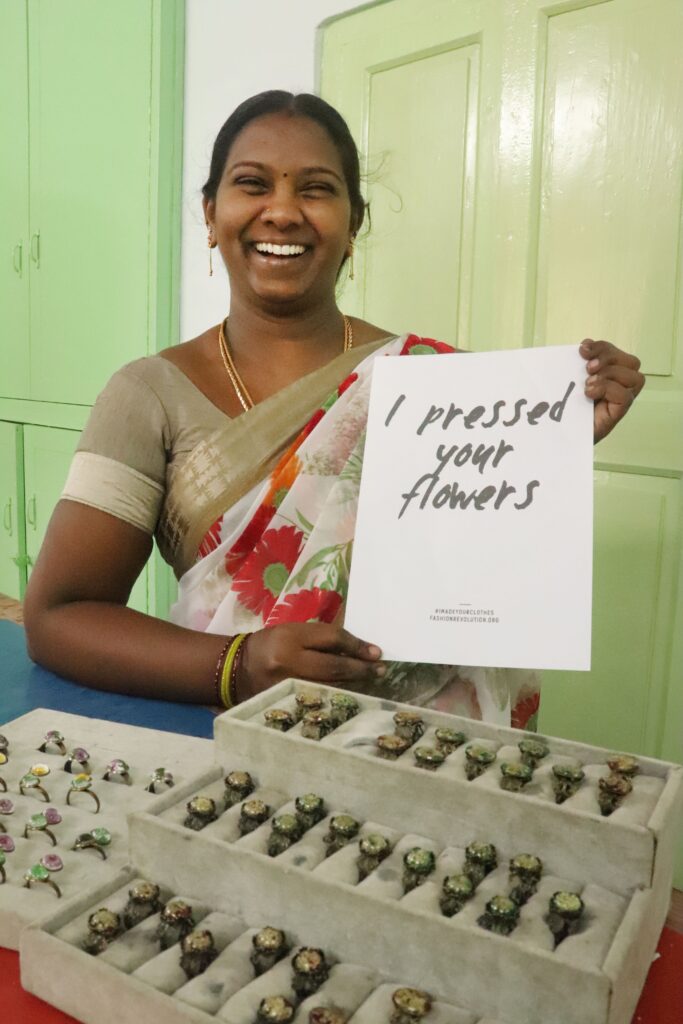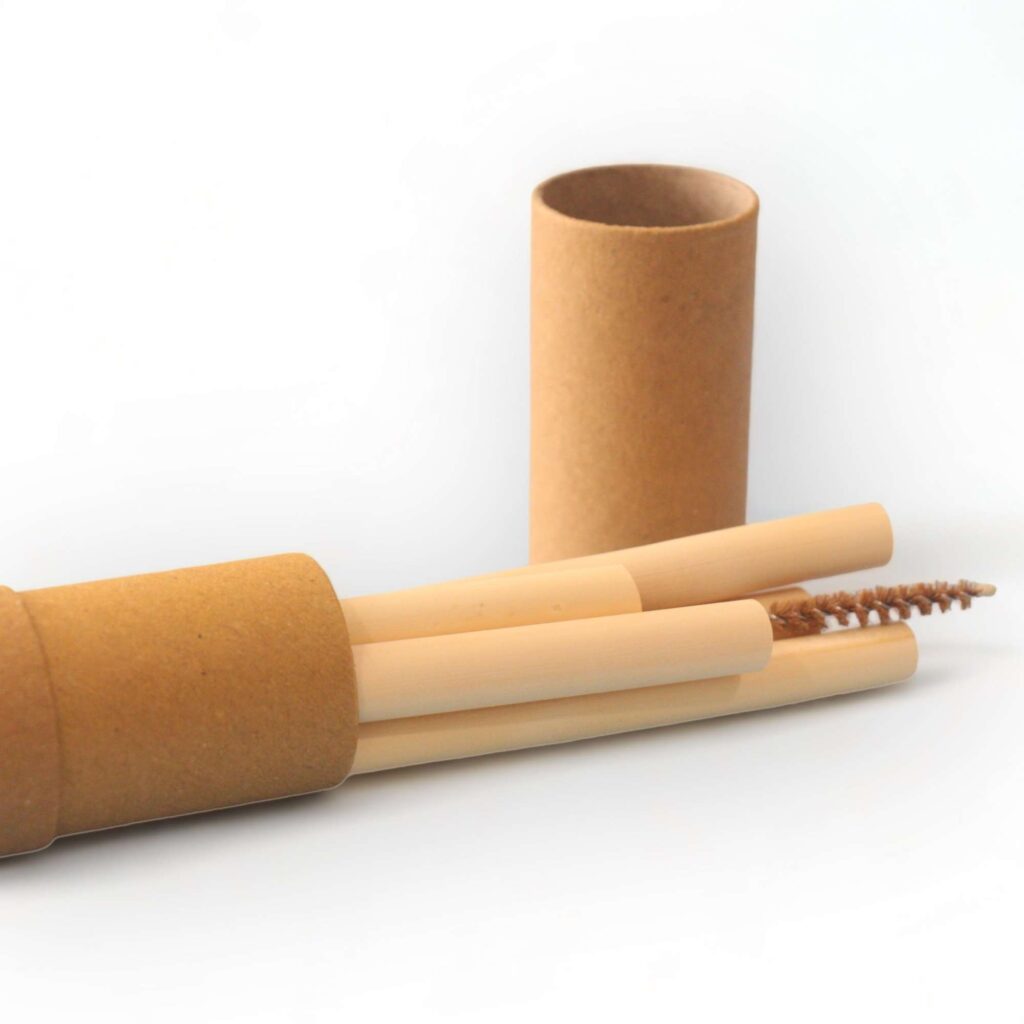“Anewlywed couple sent me flowers from their wedding garlands to add to their memory box recently!” gushes Amrita Giriraj. It’s the stories that inspire the products at Alankaara. The jewellery and lifestyle brand relentlessly explores the concept of preserving fragments of time through resin art.
At fifteen, Amrita found herself drifting towards science two—a high school course focused on zoology and botany. There was something about plants that made time stand still—be it dissecting or drawing flower parts in her biology record.
Like most unaware high schoolers, Amrita didn’t dwell much on her niche interests. She pursued the humanities in the eleventh grade where she dived into the world of history and psychology. “Back in school, our biggest goals were to pass the exams,” Amrita chuckles, breaking away from her moment of nostalgia, “However, as I post-rationalise my path, I can see how all of this influenced me to start Alankaara.”
After four years of studying visual arts, Amrita pursued a master’s degree in textile design at Srishti Institute of Art, Design and Technology in Bangalore. “Textile design was a no-brainer. I could easily understand how to apply surface design.”
The second year of graduate school was the game-changer. During her final semester, she was introduced to the world of metal and woodwork. “I suddenly realised that I had to switch over to product design,” she recalls how the course opened her eyes to newer possibilities in the field of design.
The young designer’s study period coincided with the aftermath of the infamous tsunami of 2004. The Chennai-based Post-Tsunami Sustainable Livelihood Program partnered with the college to develop a business model for the shell artisans of Kanyakumari.
The calamity imposed years of repercussions on the coastal community. To begin with, the artisan’s livelihood primarily depended on shells and tourism. Both were affected by the disaster. The graduates were faced with the task of reviving the artisans’ livelihood in a post-tsunami Kanyakumari.
Amrita spent the next three months living with the artisan community and understanding their lives and business. As she traces through her journey as a designer she pauses to mention her learnings. “It is very important to not damage the ecosystem while designing.” Traditionally, the shell artisans used at least fifty shells to create one small sculpture. As a result, they would continuously scour the seabed for more shells.
During her research, she stumbled upon the process of fossilisation. The idea was simple. Amrita would take one shell and cast it in resin. The resin would form a clear layer around the shell magnifying the interesting patterns that one would normally overlook. These pieces were then sold as ornaments or lifestyle objects. The beauty of it all—a more valuable piece was created with lesser resources! The artisans almost instantly jumped on board.
“We did a trial run by selling the products in stores around Chennai and Bangalore,” she recalls, “They were sold out in a week.” Previously the sculptures used at least fifty shells and were sold for around seventy rupees a piece while the single shells cast in resin sold for around three hundred rupees. “I started believing that design had the potential to create social impact,” she lights up.
Eventually, the organisation stopped funding the initiative. Not knowing how to take her graduation project forward, Amrita spent the following years as a merchandiser. The merchandising job was more of an opportunity that came her way rather than a career that she was passionate about. However, the experience enabled the young designer to build the skills that would set the foundation for Alankaara.
In 2015, a calamity-struck Chennai catalysed her hobby. “My mother loves gardening, so we have lots of flowers around the house,” she explains as she describes the different species through colour and shape. The week-long torrential rains followed by the disastrous flooding had left the flower beds in ruins. “My mother and I went out to collect whatever was left of the flowers,” she divulges. They were trying to save the remains of a blue Clitoria plant (locally called the ‘Sangu Poo’) when Amrita was struck by a moment of illumination. She collected the flowers that fell from the plant, pressed them in a book and cast them in resin. “I remember asking myself—did I just invent something?” she giggles.
While still working as a merchandiser, she spent all of her free time at her garage-turned-studio where she would collect flowers, dry them and cast them in resin. The art of fossilisation that she discovered during her graduation project stuck through the years and gave her the fulfilment that was lacking in her nine-to-five.
Circa 2017, the fossilised products made their first appearance under the brand name Alankaara at the Hanu Reddy Residences show. The raging success at the show was enough to encourage the young designer to take the next step.
Amrita quit her job, took a loan from her family and set out to register her start-up. “Honestly, I didn’t know much about running a business when I went to register Alankaara,” she confesses. She found herself in front of a desk at a government office filling up forms to register as a private limited company when the person behind the desk told her about the benefits of enrolling as an MSME—especially as a woman-owned business.
From then on Amrita would wake up before sunrise and rush to the Koyambedu flower market with a large bag. “I soon realised it was not very sustainable,” she admits as she explains the waste generated from buying flowers in bulk. With time she learnt to source local varieties from hill station gardens and exotic variants from around the world.
On average, twenty-five pieces are made in three days. The flower is first dried in the sun, between a book or using a microwave. A layer of resin is cast and let to dry for eight hours before a second layer is added to encapsulate the flower. The process roughly takes about thirty-two hours. “If we start making a batch on Monday it will be dispatched on Wednesday and the preparation for the next batch will begin,” she explains.
Alankaara soon made its way to exhibitions around India. The unique products were received as interesting memorabilia, especially for gifting. However, Amrita did chance upon unique situations now and then.
At the Kala Ghoda festival in Mumbai, an old lady who chanced upon Alankaara’s stall stared at the products. Her face reflected horror. “How ruthless are you!” she screamed before accusing the young designer of torturing the plants that were now trapped in resin. “I was left speechless for a good thirty seconds,” she laughs as she recounts the incident. It was a perspective she had not received before. “The flower does not feel pain,” she responded reassuringly as she backed her response with scientific evidence. “We spoke about the process in detail and eventually she bought several memorabilia to give to her grandchildren!”
Circa 2020, Alankaara gained more traction than ever. The brand moved to a brick and mortar store and scaled to a team of seven including an in-house metalsmith and a remote marketing and tech team. With the popularity and the easy access to raw materials, the fossil art space began to grow. Several Instagram businesses began selling similar products.
Amrita did not let the competition shake her. Alankaara was more than mere fossilised objects. They were life’s stories that were meant to be remembered. As a result, Alankaara did not restrict itself to flowers. “Besides fruits, vegetables and specific plants from different parts of the world, I have even had a client ask me to fossilise her umbilical cord,” she reveals as she describes the thrills of listening to people’s stories—a significant part of the process.
With every new client, she understood the value behind saving memories through the art of fossilisation. Following an open house in August this year, Amrita looks forward to expanding with a new collection of products using precious metals and gemstones. “The product is meant to last long,” she explains.
Very soon, Alankaara will make an international presence. As of now, it is setting its foundation through market studies and analysis in the US, Canada and Australia. “Although it is better to use the money you make to run the business, it is also equally important to rise above the competition.” The designer-turned-entrepreneur believes that sustainable growth is an important consideration while looking for investments.“If you are passionate about something, you will find a way to make it happen,” she concludes as she reveals that all of her random career choices in some way influenced Alankaara to grow into what it is today.
